
dontextraditeassange.com
Julian Assange has reached a plea deal for time served and has been released from Belmarsh Prison on June 24, 2024, after 1901 days unjustly detained (and a dozen years persecuted) for his journalism Read more вҶ’
The Assange Defense Committee is a U.S. coalition fighting to free WikiLeaks founder Julian Assange. Join us вҶ’


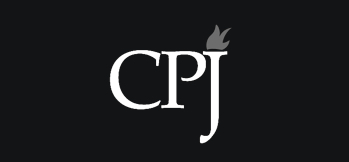

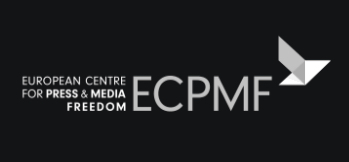
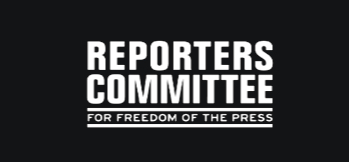
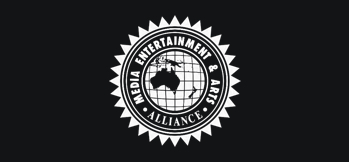
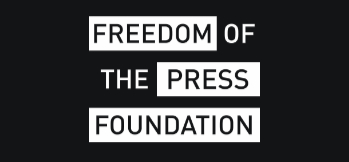
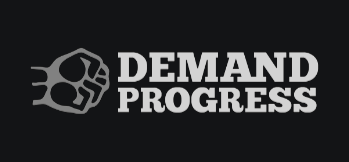
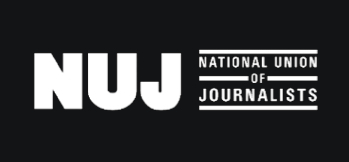

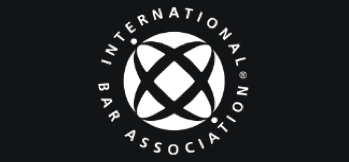

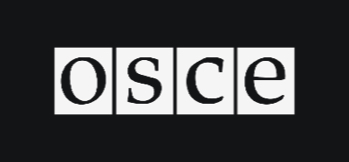

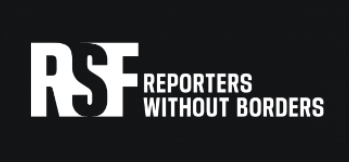



Noam Chomsky
Academic, activist
“Julian Assange shouldnвҖҷt be the subject of a grand jury hearing, he should be given a medal. HeвҖҷs contributing to democracy.”
See more вҶ’

Alice Walker
Pulitzer Prize-winning novelist
вҖңYears from now people will say: Oh, if only I had known what we were losing when they abused this decent and courageous man!”
See more вҶ’
Assange DefenseвҖҷs founding co-chairs were Noam Chomsky, Alice Walker, and the late whistleblower Daniel Ellsberg.
Status update
Assange’s situation | Updated June 2024
Julian Assange has reached a plea deal for time served and has been released from Belmarsh Prison on June 24, 2024, after 1901 unjustly detained for his journalism Read more

Journalism is on trial
WikiLeaks editor Julian Assange is facing up to 175 years in prison for publishing truthful information in the public interest.
Julian Assange is being sought by the United States for publishing US government documents that exposed war crimes and human rights abuses in 2010. The politically motivated charges represent an unprecedented attack on press freedom and the public’s right to know – seeking to criminalize basic journalistic activity.
If convicted, Julian Assange faces a sentence of 175 years, likely to be spent in extreme isolation.
The UN Working Group on Arbitrary Detention has called for the UK government to вҖңend Mr. AssangeвҖҷs deprivation of liberty, respect his physical integrity and freedom of movement, and afford him the right to compensation.вҖқ
Amnesty International says, вҖңWere Julian Assange to be extradited or subjected to any other transfer to the USA, Britain would be in breach of its obligations under international law.вҖқ
Human Rights Watch says, вҖңThe only thing standing between an Assange prosecution and a major threat to global media freedom is Britain. It is urgent that it defend the principles at risk.вҖқ
The UK’s National Union of Journalists has stated that the вҖңUS charges against Assange pose a huge threat, one that could criminalize the critical work of investigative journalists & their ability to protect their sources.вҖқ
![]()
The Economist New Media Award (2008)
![]()
The Amnesty New Media Award (2009)
![]()
The Sydney Peace Foundation Gold Medal (2011)
![]()
The Sam Adams Award for Integrity (2010)
![]()
The National Union of Journalists Journalist of the Year (Hrafnsson) (2011)
![]()
TIME Magazine Person of the Year, PeopleвҖҷs Choice (highest global vote) (2010)
![]()
The Martha Gellhorn Prize for Journalism (2011)
![]()
The Blanquerna Award for Best Communicator (2011)
![]()
The Walkley Award for Most Outstanding Contribution to Journalism (2011)
![]()
The International Piero Passetti Journalism Prize of the National Union of Italian Journalists (2011)
![]()
The Voltaire Award for Free Speech (2011)
![]()
The Jose Couso Press Freedom Award (2011)
![]()
The Privacy International Hero of Privacy (2012)
![]()
The Brazillian Press Association Human Rights Award (2013)
Assange Defense Campaign Launch
Ahead of Assange’s extradition hearing in September 2020, the Assange Defense Committee co-chairs announce the campaign to defend the First Amendment right to publish
Verdict Reaction: Extradition Denied
Noam Chomsky, Daniel Ellsberg, and Marjorie Cohn react to the UK’s district court blocking Julian Assange’s extradition on medical grounds, in a panel event hosted by Kevin Gosztola
Support Assange Defense!
Donate to the legal and public campaign to defend Julian Assange by credit card, bank transfer, cryptocurrency, or check
Take Action!
The Assange Defense is working with People Powered Initiatives to get the extradition order rescinded for Julian Assange and to protect journalism.
News
![]() Court Dates
Court Dates
TBC – High Court to decide whether to hear appeal
![]() Campaign Resources
Campaign Resources
Download posters, banners, flyers and more
![]() Support Groups
Support Groups
Join Artists for Assange | Doctors for Assange | Lawyers for Assange | Journalists for Assange

![]() Latest Updates
Latest Updates
- Bombshell investigation reveals CIA plots to kidnap, assassinate Assange
- Press freedom groups renewed calls for Biden administration to free Assange
- U.S. allowed to expand scope of Assange appeal
- Preliminary Assange Appeal hearing scheduled for August 11
- Germany: Letter of 120 politicians, artists and journalists, calling for the freedom of Julian Assange
![]() Extradition Hearing
Extradition Hearing

CELEBRATE & REFLECT ON THE CAMPAIGN VICTORY
Celebrating Julian’s freedom!
New York, Berkeley, Washington DC | September 2024
- Assange Defense hosted events in New York City, Berkeley CA, and Washington DC to celebrate and reflect on Julian Assange’s freedom and the remarkable international activist campaign that worked tirelessly for years to help secure his release
- Watch the videos here
Previous Events
-
VIDEO: Assange Defense hosts Berkeley celebration of JulianвҖҷs freedom

-
VIDEO: Assange Defense hosts DC celebration of Julian’s freedom

-
VIDEO: Assange Defense hosts NYC celebration of Assange’s freedom

-
May 20: Our right to know is on trial

Julian Assange’s Extradition Hearing
A video playlist of commentary before, during, and after Julian Assange’s extradition proceedings in London, featuring Alice Walker on the need to get involved, Assange’s partner Stella Moris, and legal observers speaking outside the courtroom.
Photobook: #WeAreMillions
O/R Books, Courage, and DiEM25 are thrilled announce our new book WE ARE MILLIONS. The team behind the #WeAreMillions project are joined by contributors Chris Hedges, Angela Richter, and Ben Cohen to discuss the book and the global support for Julian Assange.

Julian AssangeвҖҷs partner has visited him in prison for the first time in almost six months, and said he looked much thinner than last time she saw him. Continue reading вҶ’
Julian Assange’s hidden family revealed:
top secrets inside the Embassy
60 Minutes Australia watch video вҶ‘
Stella Moris вҖ“ partner of Julian Assange and the mother of his two sons
Assange’s partner is fighting against his extradition to the United States.
“My partner, the journalist and Wikileaks founder Julian Assange, is fighting extradition to the United States and faces 175 years in prison. I and many others are joined in that fight – against extradition and his continuing imprisonment. We are appealing for your help.” вҖ”Stella Moris
What WikiLeaks Exposed
WikiLeaks has published millions of documents exposing governments and corporations all around the world.

War Crimes
Collateral Murder is a classified US military video of a helicopter gunship slaying eighteen people in the Iraqi suburb of New Baghdad, including two Reuters journalists and their rescuers, documents a war crime.
The Iraq and Afghanistan War Logs showed the true number of civilian deaths in Iraq and is the most detailed record of war to date. It detailed the abuse and torture of prisoners by police and military in full knowledge of coalition forces.

Nuclear Issues
The WikiLeaks site has 284, 493 publications on nuclear issues. These documents traverse the nuclear fuel cycle вҖ“ from uranium mining to nuclear waste вҖ“ with many thousands exposing nuclear energy industry giants, and nuclear weapon threat assessments, numbers, doctrines and negotiations.
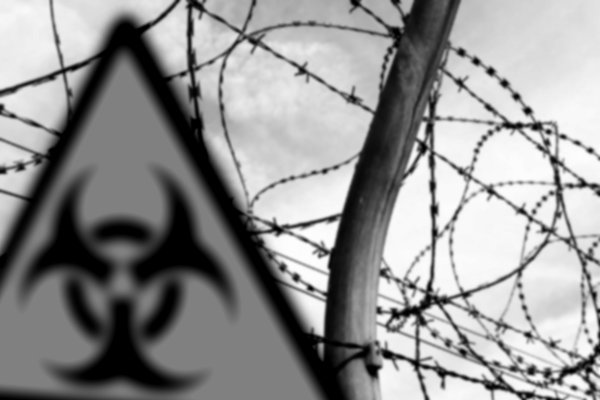
The Environment
The Minton Report detailed how Dutch multinational company Trafigura had dumped toxic waste in the Ivory Coast affecting 108,000 people. The report had been suppressed through a super injunction that the Guardian and the BBC obeyed, but WikiLeaks exposed.
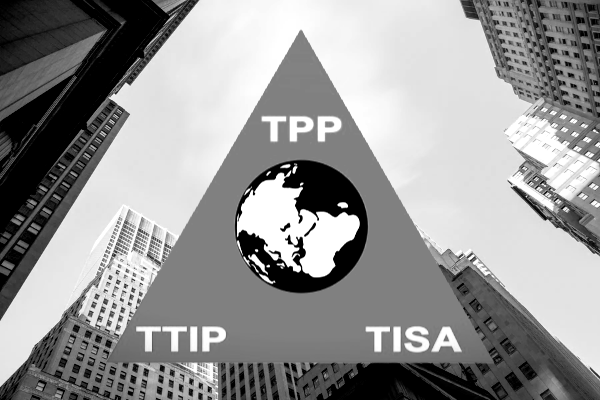
Trade
TPP, TTIP & TISA, aka the вҖҳBig 3TsвҖҷ, are major trade agreements being drafted and negotiated in secret without proper democratic oversight. WikiLeaks has provided multiple draft chapters and negotiating positions to the public. The Trans Pacific Partnership Agreement (TPP) and Transatlantic Trade and Investment Partnership are now stalled. The lesser known Trade in Services Agreement (TiSA) between US, EU and 22 other countries accounts for two thirds of global GDP has been classified to keep it secret not just during the negotiations but for five years after the TiSA enters into force.

Intelligence
The Global Intelligence Files revealed the inner workings of the private intelligence firm Stratfor that services the US government and large corporations such as BhopalвҖҷs Dow Chemical Co., Lockheed Martin, Northrop Grumman, Raytheon and government agencies, including the US Department of Homeland Security, the US Marines and the US Defence Intelligence Agency.

Wars and Refugees
WikiLeaks released two classified EU documents, outlining the planned military intervention against boats travelling from Libya to Italy. The more significant of the two documents was written by the combined military defence chiefs of the EU member states. The plan was formally approved by representatives from all 28 countries on 18 May 2015.





